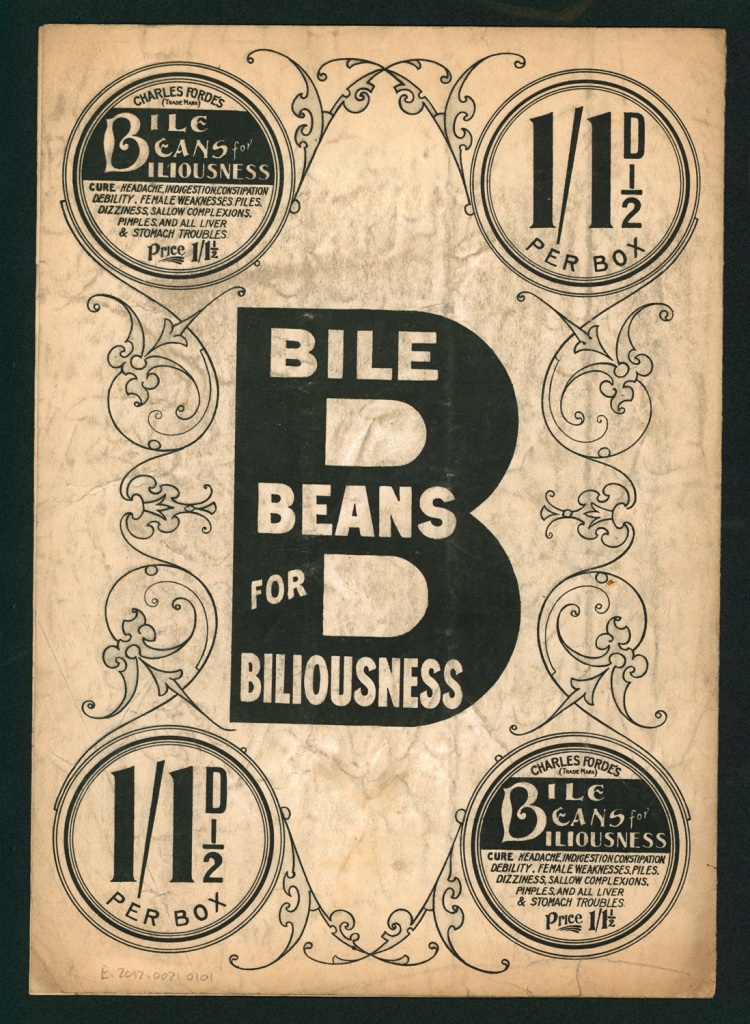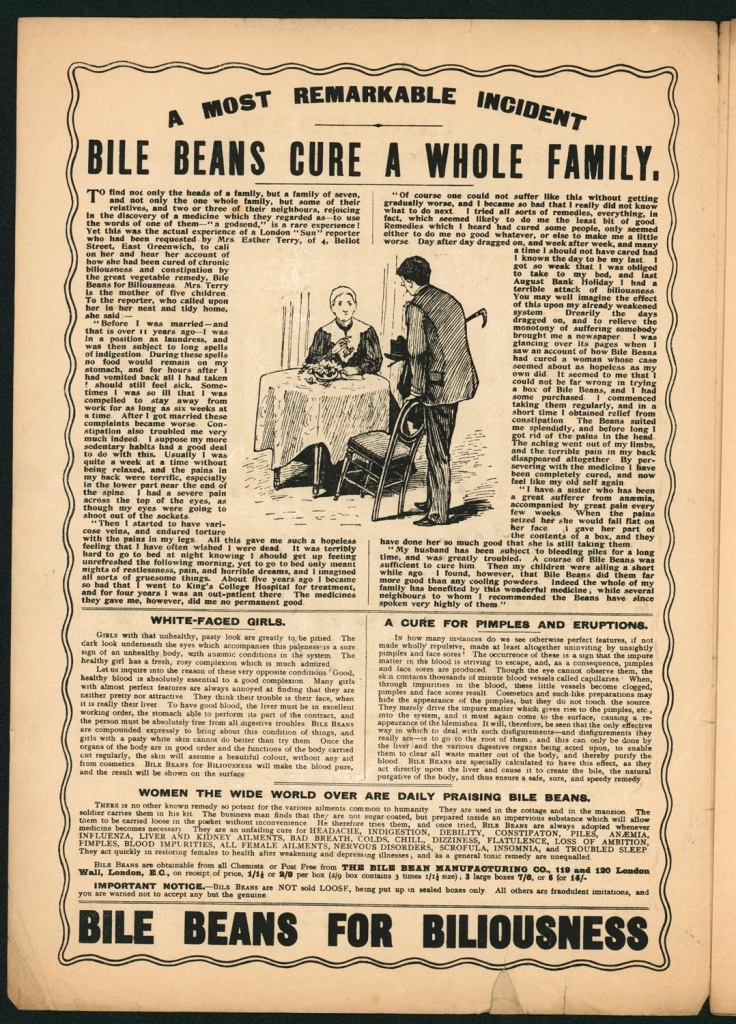Abbey House Museum in Leeds, West Yorkshire, is offering a glimpse into the dubious history of dodgy advertising
By Mark Cantrell

SOME people will say anything to make a quick quid; especially in bygone days. They’re not always dodgy little conmen flogging things out of the back of a van, either; no, they are entirely ‘reputable’ companies.
But rogue traders come in all shapes and sizes, and suspect sales techniques aren’t restricted to the borderline criminal fraternity; at the end of the day, it’s about clinching a deal – soaking up the sucker’s cash – and to hell with the consequences (for the punter).
There’s a reason we have advertising standards, after all; however effectual those regulations might be in practice (but that’s another story).
Advertising might hanker to the status of an art-form – and sometimes its output might even come within kissing distance of realising that aspiration – but if any has truly reached that peak, then it’s surely the kind that cons us.
Well, it must be so; why else open an exhibition dedicated to the suspect sales tactics employed by crafty companies down through the last century or so of attempted consumer beguilement?
Making an exhibition
The Power of Persuasion opened at Abbey House Museum, in Leeds, West Yorkshire, back in January, to explore the evolution of advertising. Naturally, it being a city institution, it offers up a local flavour, but it’s a theme that resonates far and wide; purveyors of snake oil know no bounds, you might say.
The exhibition casts a critical eye over the spurious claims made by firms in the past; some of which occasionally landed them in hot water, and helped to set up the standards for advertising today.
But it’s not all ‘dodgy geezers’; there’s also a look at some of the iconic brands that arose in Leeds, and which have stood the test of time to cement their place in history.

“The tactics companies have used to try and persuade customers to part with their money have varied dramatically over the years, in line with consumer trends, economics, and the way in which advertising itself has been regulated,” said Kitty Ross, curator of social history at Leeds Museums & Galleries,
“Victorian and early 20th Century companies had a tendency to either wildly exaggerate or outright fabricate the health benefits of their products, often leading to quite outlandish claims which did not stand up to scrutiny.
“With the development of much stricter standards, modern adverts have placed more emphasis either on luxury or value.
“What’s been a consistent, common thread has been the desire to convince customers that your product is the best and most dependable, and it’s the products which have achieved that which have developed that all important brand identity that’s withstood the test of time.”
Bile beans and liquorice
Among the stories featured in the exhibition are the fraudulent claims made by Leeds firm C.E. Fulford Ltd, which had the appetisingly named Bile Beans on sale in the early 1900s.
Supposedly capable of helping with all manner of minor ailments, the beans, which acted as a laxative, purportedly owed their amazing curative properties to a mysterious secret ingredient discovered by a fictional explorer in the heart of Australia.


But when the company was taken to court for fraud in 1904, not only were the miraculous medicinal properties of Bile Beans found to be false, but the company was also forced to admit their “secret ingredient” was in fact nothing more than humble, locally grown rhubarb and liquorice.
Other brands under the spotlight include Vibrona Tonic Wine, made by Fletcher, Fletcher and Co. Ltd in around 1905.
Marketed as medicinal, and available to buy at chemists rather than licensed premises, tonic wines were in fact extra strong alcoholic drinks, which resulted in many innocent buyers becoming unwittingly intoxicated.
The exhibition also looks at how tobacco was once sold as a health product, with one 1914 snuff company’s advertisement even carrying the slogan “a pinch a day keeps flu away”.
Tried and tested
By way of a contrast with such a nefarious approaches, other objects on display look at the stories behind many historic, tried and trusted brands, logos and packaging, which have become synonymous with their products.
Also part of the exhibition will be a selection of vintage signs which once adorned the streets of Leeds. These include a giant pair of spectacles which once hung outside the famous Dyons jewellers, founded on The Calls in 1845. The huge glasses were rescued from a skip when the shop was renovated.

Other signs include an eye-catching golden Tetley’s brewery sign and a huge wooden arm and hammer which once advertised a Victorian gold beater’s shop in Leeds.
Other topics explored in the exhibition include beauty, saving money, competitions and prizes, and confectionery, which will be displayed in a recreated traditional sweet shop.
“Leeds has been the birthplace of some truly iconic brands which have helped put the city on the map nationally and around the world,” said Councillor Jonathan Pryor, the city council’s executive member for economy, culture, and education.
“It’s fascinating to explore how those brands and others have become part of our history, and to see some of the many enthralling objects in our world class collection.”
The Power of Persuasion at Abbey House Museum, Leeds, runs until 31 December 2024.
MC
Thanks for taking the time to read this post.
For the price of a cup of coffee you’d not only be showing your appreciation of the writer’s efforts, but also helping to support an indie author in these difficult times.
Drop by Ko-Fi to make a donation.
Thanks in advance for your support. It is gratefully received.

